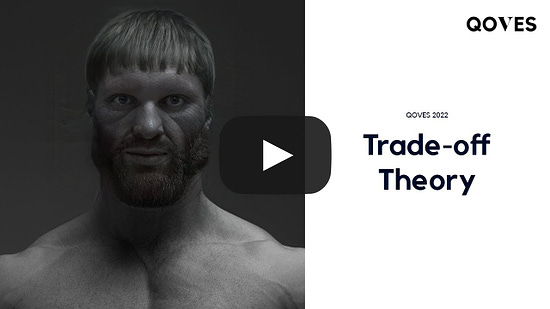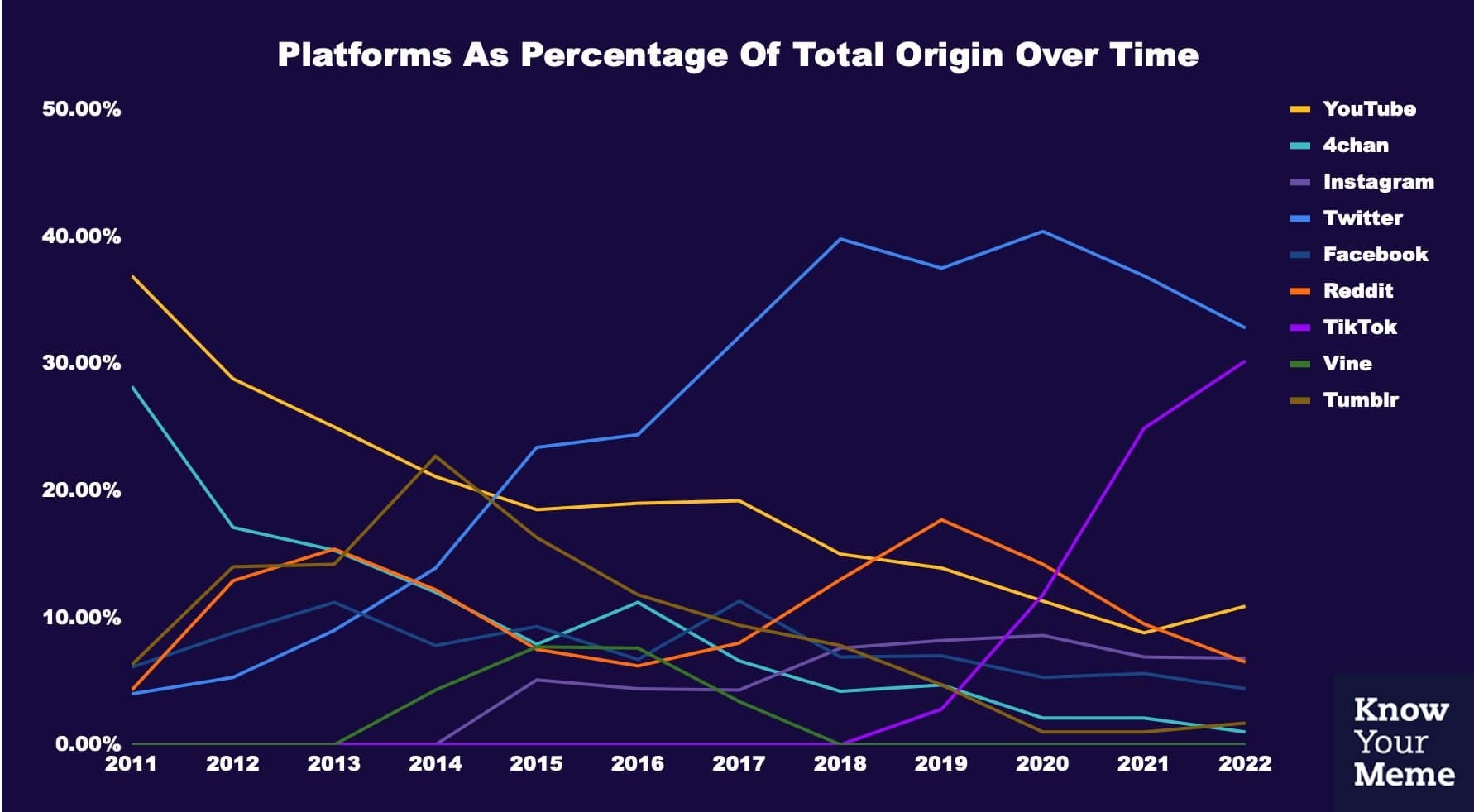Hi there, it’s Mehdi Yacoubi, co-founder at Vital (join the community!), and this is The Long Game Newsletter. To receive it in your inbox each week, subscribe here:
In this episode, we explore:
Health requires effort
Happiness, moral character & culture
It’s supposed to be hard
How to be successful
Control the memes, control the universe
Modern malaise
Let’s dive in!
This week, a few tweets and pieces of content made me want to share an idea: health requires effort. The sooner you’ll accept it, the better you’ll be.
Things are not looking good health-wise in most of the world:
… but unfortunately, too often, the solutions proposed are gimmicks or hacks that sell us a shortcut because most people prefer to believe in a shortcut rather than accept the required effort to improve.
This brings us to the “Attia Rule”:
This is my whole pet peeve in life. I just can’t get enough of the machinating and arguing about this supplement vs. that supplement and I feel like you shouldn't be having those arguments until you have your exercise house in order. You shouldn’t be arguing about this nuance of your carnivore diet vs. this nuance of your paleo diet vs. this nuance of your vegan diet until you can deadlift your bodyweight for 10 reps. Then you can come and talk about these things.
Before focusing on the fancy that will most likely have a small impact on how you feel, you have to master the basics. I already shared a lot of exercise-related resources in previous episodes, but getting your strength level to a solid level will tremendously impact your vitality.
I have been sharing many ideas in this section, but not much about how morality and culture impact our happiness. This week, I gathered a few interesting articles related to that to broaden our reflections on happiness.
For Happiness, Moral Character is More Important Than Intelligence or Money
The idea that happiness requires virtue is not new, but this is an interesting modern revisit of it:
Adults and children rated characters with high moral character as being happier regardless of their intelligence. In other words, adults and children believe a less intelligent person with high moral character is happier than a more intelligent person with low moral character.
Many people would prefer to be smarter than more ethical. This is because they’d say intelligence will lead to more money, more friends, more mates, and ultimately, more happiness. But these findings suggest people intuitively believe moral character, compared to intelligence, is more closely tied to happiness.
So those were the results for Western adults and children. The researchers investigated whether such findings would replicate in a non-Western culture.
In Mandarin Chinese, there are two words that convey the concept of “happiness.” One word is “Gao Xing” which indicates subjective feelings associated more with “pleasure.” Another word is “Kuai Le” which captures a richer meaning associated more with “fulfillment.” Eating a cookie might make you feel Gao Xing (pleasure) but not Kuai Le (fulfillment). In contrast, having kids might make you feel Kuai Le but not Gao Xing.
In the same set of studies, the researchers recruited 421 Chinese adults and showed them similar stories about moral and immoral characters. They then rated how much Gao Xing (pleasure) and Kuai Le (fulfillment) each character experiences.
Surprisingly, there was no difference between the two words. People rated the moral characters has having both high pleasure and high fulfillment, and the immoral characters as having low pleasure and low fulfillment. Even when a character is explicitly described as feeling positive emotions, people are reluctant to view them as experiencing any kind of happiness.
The researchers close their paper with:
“In conclusion, we found that moral judgment plays a fundamental role in our happiness conception, which is surprisingly early emerging and robust across ages, cultures, and languages. These findings thus not only contribute to a better understanding of the nature and origins of our happiness concept, but also uncover the unique role of morality in perceived happiness as a fundamental cognitive feature of the mind. Therefore, the answer to the ancient question ‘what is happiness’ is actually within us from early in life: Happiness is more than just good feelings; it arises from goodness in the soul.”
Why does culture get less happy year after year?
Our emotional decline into everything being "dark and gritty":
Lately I’ve been working through some old criterion collection movies with my family, and the first thing you notice with old movies or TV is how happy everyone is. Like how abnormally, freakishly, stupidly, weirdly, cheerful. The past is always fundamentally unknowable to us, although the mechanisms by which this opaqueness occurs is unclear, and I oscillate between thinking that people in, say, the 1950s, were fundamentally different from us psychologically and the opposite position that they were exactly like us.
Think of 30 Rock, a TV show about comedy writers writing a comedy TV show. It is very funny, but not one of the characters could be described as happy. The setup (comedy writers working at a sketch comedy TV show) is identical to that of 1961’s The Dick Van Dyke Show (also about comedy writers working at a sketch comedy TV show). In The Dick Van Dyke Show all the characters (including Mary Tyler Moore, the singing/dancing talented housewife) are portrayed as being extremely happy. We readily acknowledge now that The Dick Van Dyke Show is a fantasy, but it’s odd to think that this is a fantasy true in pretty much any old TV show, and often holds in movies as well. Old music also feels more cheerful to me—the ‘50s may have been abnormally Stepford-wives cheerful, but the power rock of the ‘80s is also incredibly cheerful, and consumed today only with a thick dollop of irony on top.
I think many of us are looking for happiness in places where it’s doubtful we’ll find it. People want to be smarter, richer, well-connected, and aware of the latest news and TV shows. Still, it’s increasingly clear that these things aren’t a significant contributor to our happiness, or at least that there are some other (more accessible?) things one can do that would lead to better results.
Things like morality, curation of what you consume, and other simple things like walking, exercising, and good relationships, are far more impactful for your happiness than anything else.
Pair with: People Spend Too Much Time On Decisions with Equally Satisfying Outcomes
The modern world is obsessed with getting great things in an easy way. People want great results—that are ever easier to witness on social media—without putting in the outstanding efforts needed.
This is what Michael Easter perfectly named: The Comfort Crisis. The book is excellent. I’ll cover it in more detail soon. In the meantime, I thought this piece from Morgan Housel will give you the idea: it is supposed to be hard.
About 1% of college basketball players make it to the NBA. That funnel doesn’t seem odd – no one would say college basketball is broken, or a scam, or ineffective at developing great players. It’s obvious that getting to the NBA is really hard, and you can be talented and still not make it. The entire reason pro sports are exciting is because the players do something almost no one else can do. Michael Jordan is interesting because there’s only one of him.
I think that logic breaks down in investing for a couple reasons.
1. Professional investors generally need other people’s money to invest. If a college basketball player doesn’t make it to the pros, no one except maybe himself feels as if the goal wasn’t reached. But if you invest your money with a professional investor and they fail to perform, you and your spouse and your kids and college’s endowment might feel cheated and disappointed. There is more collateral damage in investing than other pursuits.
2. The barriers to entry in investing are low. Every year there is a story about someone starting a successful hedge fund from their dorm. People love these stories. But imagine a story where an eager med student was performing surgeries from their dorm – it’s impossible and illegal. Professional money management requires no credentials and has few startup costs. That increases the number of people who try their hand – there are now more than 16,000 mutual funds and 10,000 hedge funds in the US. For perspective there are 15,444 Starbucks locations in the U.S. It’s inevitable that the vast, vast, majority will be mediocre at best.
The thing to keep in mind is that in any endeavor that has the potential to deliver big rewards, the best you can do is put the odds of success in your favor, which means recognizing that if you make 100 attempts at something, 99 of them might be failures but one might be an enormous win.
Comedy works like that, too.
The Chris Rock I see on Netflix is flawless. The Chris Rock that performs in dozens of small clubs each year is just OK. No one is so good at comedy that every joke they write is funny. So every big comedian tests their material in small clubs before using it in big venues. Rock explained:
When I start a tour, it’s not like I start out in arenas. Before this last tour I performed in this place in New Brunswick called the Stress Factory. I did about 40 or 50 shows getting ready for the tour.
One newspaper described Rock at the Stress Factory fumbling with material to an indifferent audience. “I’m going to have to cut some of these jokes,” he says mid-skit.
It’s supposed to be hard.
Pair with: Relentless, Endure and cold showers.
I recently revisited this article that I shared on The Long Game a year ago. It’s well worth reading & re-reading.
I’ve observed thousands of founders and thought a lot about what it takes to make a huge amount of money or to create something important. Usually, people start off wanting the former and end up wanting the latter.
Here are 13 thoughts about how to achieve such outlier success. Everything here is easier to do once you’ve already reached a baseline degree of success (through privilege or effort) and want to put in the work to turn that into outlier success. But much of it applies to anyone.
The 13 ideas:
Compound yourself
“Most people get bogged down in linear opportunities. Be willing to let small opportunities go to focus on potential step changes.
I think the biggest competitive advantage in business—either for a company or for an individual’s career—is long-term thinking with a broad view of how different systems in the world are going to come together. One of the notable aspects of compound growth is that the furthest out years are the most important. In a world where almost no one takes a truly long-term view, the market richly rewards those who do.
Trust the exponential, be patient, and be pleasantly surprised.”
Have almost too much self-belief
“Self-belief is immensely powerful. The most successful people I know believe in themselves almost to the point of delusion.”
Learn to think independently
““I will fail many times, and I will be really right once” is the entrepreneurs’ way. You have to give yourself a lot of chances to get lucky.”
Get good at “sales”
“All great careers, to some degree, become sales jobs. You have to evangelize your plans to customers, prospective employees, the press, investors, etc. This requires an inspiring vision, strong communication skills, some degree of charisma, and evidence of execution ability.”
Make it easy to take risks
“Most people overestimate risk and underestimate reward.”
Focus
“Almost everyone I’ve ever met would be well-served by spending more time thinking about what to focus on.”
Work hard
“You can get to about the 90th percentile in your field by working either smart or hard, which is still a great accomplishment. But getting to the 99th percentile requires both—you will be competing with other very talented people who will have great ideas and be willing to work a lot.”
Be bold
“I believe that it’s easier to do a hard startup than an easy startup. People want to be part of something exciting and feel that their work matters.”
Be willful
“A big secret is that you can bend the world to your will a surprising percentage of the time—most people don’t even try, and just accept that things are the way that they are.”
Be hard to compete with
“Most people do whatever most people they hang out with do. This mimetic behavior is usually a mistake—if you’re doing the same thing everyone else is doing, you will not be hard to compete with.”
Build a network
“A particularly valuable part of building a network is to get good at discovering undiscovered talent. Quickly spotting intelligence, drive, and creativity gets much easier with practice. The easiest way to learn is just to meet a lot of people, and keep track of who goes on to impress you and who doesn’t.”
You get rich by owning things
Be internally driven
“Smart people seem to be especially at risk of such externally-driven behavior. Being aware of it helps, but only a little—you will likely have to work super-hard to not fall in the mimetic trap.
The most successful people I know are primarily internally driven; they do what they do to impress themselves and because they feel compelled to make something happen in the world.”
What the next great AI-enabled product will answer:
Before this week, you had to use an opaque API like Amazon Transcribe (2.4 cents/minute), Google Cloud (3.6 cents/minute) and Rev.ai (3.5 cents/minute) (good comparison article here).
Now you can run Whisper on commodity devices (an EC2 t3.medium is 4.2 cents per hour, and there is lots of near free compute for infrequent/async use cases) and customize/further train it to your heart’s content.
With August’s Stable Diffusion, people were speculating that stock image companies would go out of business (why settle for a limited inventory of stock images when you can pluck the exact image for you from the multiverse at ~no cost?).
With September’s OpenAI Whisper, my friends were actively exploring replacing their existing bills for transcription services.
I recently discovered David Senra of Founders Podcast. He is exceptional. I liked this interview and started listening to his show with this episode on Rockefeller.
So to answer your question, there's a quote I have on my phone. I've had this quote since 2017. I'm not a fan of moderation. I'm attracted to extremes. What do you want your life experience to be? Do you want to be exceptional? Do you want to push the boundaries of your capabilities? Do you want to walk around in a fog butting up against your potential but never actually realizing it? Then knock yourself out. Be moderate. I'm not interested in that. So I can't do the podcast less than I do. All I can do is say, "Hey, this thing, this obsession of mine, will overtake my life because I've seen enough stories where it can ruin my life." So I have boundaries. I have a balance every day. The only thing I figured out is because I'm an obsessive person. Obviously, you are. A ton of people that are listening to this as well. So what I realized is like, okay, instead of working like ton of hours, five days a week, I'll just spread everything out and have a balance, seven days a week.
This is Ed Thorp. I literally just read his book, took his blueprint like, oh, I'll just do that. Ed Thorp says, "Every hour you spend in fitness is one less day in the hospital." First thing I do is wake up in the morning and I do an hour of some kind of physical activity, whatever you like to do. Then I work. I spend time with my kids. I spend time with my wife, and I talk to friends. Maybe have an hour or two, something that's fun. But really, work is my hobby, and that's the advantage I have over other people. Somebody listening might say, "Hey, I'm going to do a podcast on the history of entrepreneurship." Go ahead. You should. It's not like a zero sum game, but I'm only going to do this. I'm not going to start a fund. I'm not going to start another business. I'm only going to do this.
A theory
We gave up on all the old ideologies of the 20th century, and we have no replacement.
In the 80s Thatcher and Reagan broke down trade barriers and ceded government power to banks and corporations. This created a consumer world driven by debt, where everything was assessed by utility. Politics essentially “became a wing of management, saying that it could stop bad things from happening instead of imagining how things could be better.”
Now politics feels like pantomime, with both parties bickering over social issues while neither has the political will to meaningfully affect the economy. Curtis: “Online psychodramas create waves of hysteria that make it feel like the world is transforming. In fact, nothing actually changed in the last four years. Trump made himself a pantomime villain, and we booed rather than imagine an alternative.”
Money became our religion, and now money is starting to run dry, as the world’s largest economies slow in their growth. Both democracies and dictatorships are in a moment of crisis.
An artificial intelligence system trained on words and sentences alone will never approximate human understanding.
One way of grasping what is distinctive about the linguistic representational schema — and how it is limited — is recognizing how littleinformation it passes along on its own. Language is a very low-bandwidth method for transmitting information: isolated words or sentences, shorn of context, convey little. Moreover, because of the sheer number of homonyms and pronouns, many sentences are deeply ambiguous: does “the box was in the pen” refer to an ink pen or a playpen? As Chomsky and his acolytes have pointed out for decades, language is just not a clear and unambiguous vehicle for clear communication.
But humans don’t need a perfect vehicle for communication because we share a nonlinguistic understanding. Our understanding of a sentence often depends on our deeper understanding of the contexts in which this kind of sentence shows up, allowing us to infer what it is trying to say.
Memes are the new and perhaps most important medium of communicating simple and powerful ideas.
This is why platforms fight to be the center of this communication revolution.
I liked this report: Where Do Memes Come From? The Top Platforms From 2010-2022
From the rise of TikTok to the fall of Tumblr, from the green-texted halls of 4chan to the doomed paradise of Vine, from the most boomer Facebook page to the most niche Gen Z Instagram account, Know Your Meme has seen it all.
But what does it all mean?
In many ways, the history of internet culture has yet to be told. It all happened fairly recently and the internet can be difficult to analyze. It's enormous, records get deleted quickly and platforms are less than transparent about how decisions get made and algorithms function.
The social web is everywhere — by our bedsides as we wake, in our pockets as we walk around, at our workplaces when we're pretending to be productive, in our intrusive thoughts, at the table during family dinner and even in our dreams.
Somehow, a place where you could post funny faces on image forums transformed into a place where people will pay a million dollars for a picture of a monkey they can’t even hold in their hands. It's important to know how that happened, so let's take a look at the internet's evolution, as seen through memes, over the last decade-plus.
This is a good follow-up article on the topic:
The fact that an app like TikTok is about to become the number one app in America is notable for a few reasons, though. There’s obviously the fact it’s owned by a Chinese company, which seems to be making Silicon Valley feel very uncomfortable in an interesting echo of how every tech company (and government) around the world felt when American platforms were running amok in their backyards. But also TikTok is mechanically different from Facebook or Twitter.
It has easily the most aggressively personalized algorithm we’ve ever seen in a social platform. Its For You Page uses machine learning to react in almost real-time, following signals about you’re watching to offer more or less depending on how you navigate the app. A TikTok video shouldn’t be thought of as one piece content, but as a series of inputs to be analyzed by the platform’s artificial intelligence — the caption, the hashtag, the length of the video, the audio, the filters used, the comments, the accounts the commenters follow, the accounts you follow, etc. All of it creates branches of recommendations to offer you.
I personally think TikTok should have been banned a long time ago.
This will show you how bad dating apps are for most men.

Pair with: Having Lots Of Single Men Is Very Dangerous For Society

Pair with: Women on Birth Control Pills Prefer Less Masculine Men
I know this isn’t the healthiest thing to consume, but I try to keep things simple and convenient lately. I’ve been enjoying one or two of these per day for an extra 20—40g of protein & 200—400 Cal. My daily targets are 200g of protein and 4—4.5k Cal these days.
“People fall so in love with their pain, they can’t leave it behind. The same as the stories they tell. We trap ourselves.”
— Chuck Palahniuk
Thanks for reading!
If you like The Long Game, please share it on social media or forward this email to someone who might enjoy it. You can also “like” this newsletter by clicking the ❤️ just below, which helps me get visibility on Substack.
Until next week,
Mehdi Yacoubi









